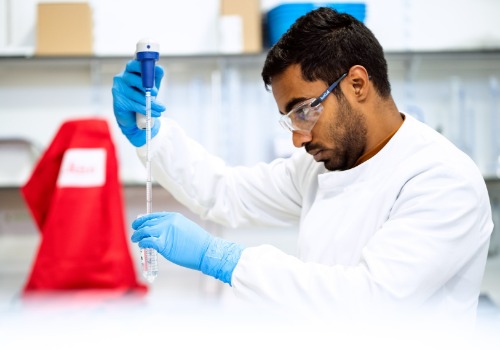The pandemic has brought out fear and uncertainty amongst many of us. While some dread the possibility of contracting the virus, some are taking a “let’s get it over and done with” attitude. The fact remains that we don’t really know enough about COVID-19 yet, meaning many industries remain in limbo and high-risk individuals struggle on in relative isolation.
The NHS is working to collect a stock of plasma intended to aid research into COVID-19 treatments. People who have recovered from coronavirus are invited to take part in the clinical trial, which will help researches to decide whether this plasma is effective in treating coronavirus patients.
Criteria for donation is quite strict – individuals must have been in recovery for over 28 days before donating, must be fit and healthy and meet other eligibility criteria. Not everyone who applied to donate gets through to the next round, either, as people who have officially tested positive for coronavirus or existing blood donors who’ve had coronavirus are given priority.
Some of the Romero team have already bravely fought coronavirus and are now donating their blood plasma to help others.
What happens when you donate plasma?
It’s not quite as simple as donating blood, as the process takes much longer. During the 45-minute time slot the plasma is separated from the blood as the individual donates with blood then returned into the body. As the process involves donating plasma rather than whole blood, so donors can give plasma every two weeks (as opposed to waiting over 12 weeks between whole blood donations).
Those donating must wear a face covering while donating and must be fit and healthy on the day of donation.
The benefits of donating
The trials are helping scientists look at treatment for COVID-19. Plasma may contain antibodies that individuals’ immune systems have produced to fight coronavirus. These antibodies may then be used to stop virus getting into cells. The NHSBT Clinical Trials Unit is investigating whether convalescent plasma transfusions are safe and beneficial, including at what point during the COVID-19 illness a patient should be treated via transfusion. The treatment in the REMAP-CAP trial is for people with COVID-19 who have been in intensive care for less than 48 hours. They will be given two transfusions over two days. The RECOVERY trial is investigating the effectiveness of convalescent plasma for treating patients with coronavirus who are hospitalised, but not in intensive care.
Well done to our team
Though this is a time-consuming and potentially challenging process, our Director Karl Milner and Associate Director Paul McAndrew donated plasma recently. Paul said: “You hear stories everyday of those who are struggling to recover from Coronavirus and it puts into context how lucky I am to have had it so mildly. During times like these it’s important we all pull together and do what we can to fight the virus and look after one another. The NHS has done me proud in recent years, so I’m very pleased that I have had the opportunity to able to give something back – well an armful back – and do my bit.”
Want to find out more about our wonderful team and what they’ve been up to during lockdown? Visit our Instagram feed for behind-the-scenes snaps.

